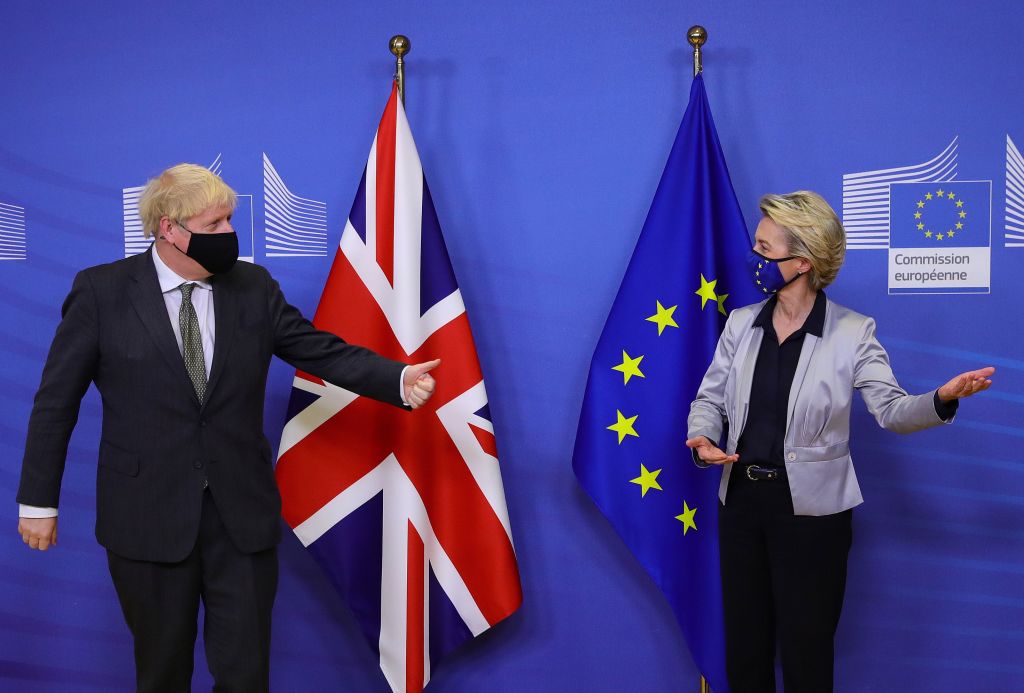You will doubtless have heard this argument many times: Britain will have to budge on the terms for a free trade deal with the EU eventually because there is a powerful asymmetry at work.
The case runs thus: Though it is perfectly true that the EU runs a big trade surplus with the UK, it is also true that more than 40 per cent of our exports go to the EU, while the UK market constitutes a much smaller share of the overall exports of any individual member state.
Therefore, in any trade Armageddon in which all exporting and importing between the UK and the EU ceased, we would have lost nearly half of our export markets (worth about 14 per cent of GDP), while they would have lost a smaller proportion of theirs (worth perhaps a couple of points off EU GDP).
And while there won’t be a total collapse of trade under any circumstances, the broad ratio of lost sales is still likely to apply, meaning that proportionately the hit to the UK economy will be much greater than to countries in the EU. Ergo, when realism kicks in and the heady brew of Brexit euphoria subsides, Britain will have to accept whatever terms are on offer from mighty Brussels.
Despite a series of countervailing factors, such as the ability of the UK to use substantial tariff revenues to cushion the blow, the ability of UK producers to increase their share of the home market, and the expansion of new overseas markets for Britain outside the EU, this analysis of trading asymmetry is not entirely without merit.
It is probably a big reason why the technocrats of the European Commission simply refuse to believe that Britain really could reject the terms they have offered and go for a no-deal denouement to the transition period.
But it misses another asymmetry that is very important indeed: political asymmetry. For the British Government is responding to the instruction of the British people to ‘take back control’ of their laws, borders and money from Brussels. And as the Labour Party and Liberal Democrats found out in the general election of a year ago, the public takes a very dim view of anyone seeking to wheedle out of that democratic imperative.
The European Commission and the national leaders of the EU member states have no such popular instruction to ensure that Britain is kept enmeshed in the EU’s rules.
This means that while any trade war could initially have more severe impacts in Britain than in EU states, the British public are much more likely to tolerate them and act to ameliorate them.
One should certainly expect a powerful spontaneous move towards patriotic purchasing in the UK and the boycotting of European goods should we become subject to an economic punishment beating at the hands of Brussels for daring to break free. Boris Johnson will be able to wrap himself in the flag and use the Brexit mandate as political cover for any adjustment difficulties.
But in Germany, say, or the Netherlands – two of the EU countries that export most to the UK – are domestic consumers going to deliberately shun British goods because of Britain’s decision to bail-out of the EU? That seems highly unlikely.
And will the German public be content if the hardball attitude displayed towards Britain by a self-perpetuating European Commission elite results in a manufacturing recession and the loss of highly-paid jobs in their own back yard? Also unlikely.
The pain threshold of national electorates across the EU is likely to be much lower than it will be in the UK. ‘Why are we starting this trade war with Britain?’ the voters will ask. National leaders will be pressed on whether they have been played by Michel Barnier and Ursula von der Leyen, with the precious integrity of the Brussels system having been elevated above the economic interests of the member states.
Ever since the referendum, Brexiteers have predicted that the powerful industrial lobbies in Germany and elsewhere across the EU will at some point use their leverage and insist on Brussels showing flexibility in reaching a free trade deal with the UK. It hasn’t happened yet.
But that is probably because the transition period has meant that trade friction has not yet been experienced. Barring some five-to-midnight miracle in Brussels, the friction begins on January 1.
While the EU intends to bring in all its controls at once, the UK is going to be phasing its own in. The full set of new hurdles for EU exporters will not be in place until the end of June, though new ones will come on stream every few weeks throughout the first half of the year.
One doesn’t have to go the full Corporal Jones (‘they don’t like it up ‘em, sir’) to see that some very searching questions are likely to be asked in the EU while all this is going on. Or to think it perfectly likely that that the EU side will end up blinking first once the trade war of 2021 really gets going.







Comments